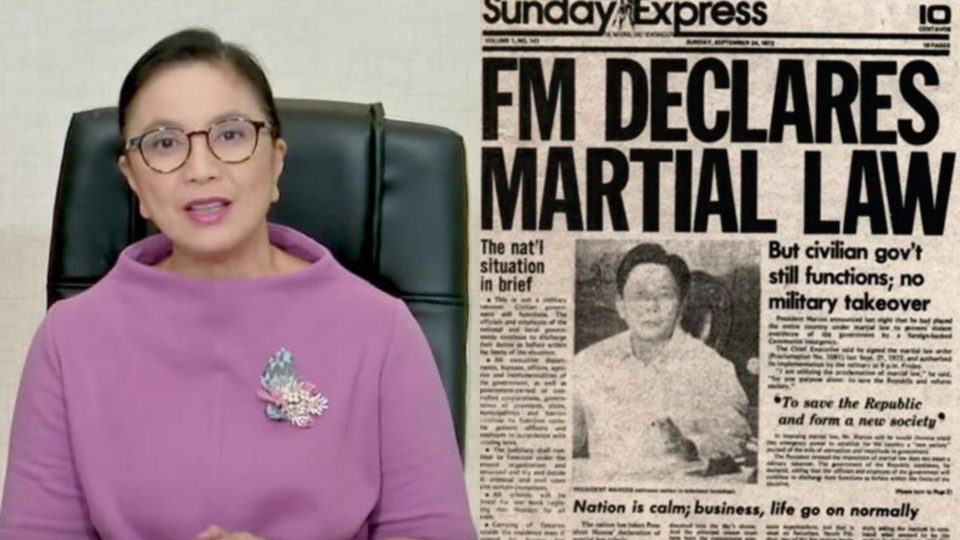Vice President Leni Robredo today urged Filipinos to push back attempts to rewrite the human rights horrors that transpired during the Marcos regime, as the country marks the 48th anniversary of the declaration of martial law.
“In a time when divisiveness is the norm and the gaps in society continue to widen, it is essential that we strive to find more spaces of commonality…We do this by telling our stories, and by asserting the truths that bind us together as one people, with one history,” Robredo said in a statement.
“Many were tortured, had disappeared, and were killed during martial law; the nation’s debt ballooned which we continue to pay until now; poverty deepens and widens. The pillars of society were crushed. Corruption and abuse have become part of the spirit of governance,” Robredo reiterated in Filipino.
She said that these truths are non-debatable and “know no political color…and those who attempt to tell us otherwise are not only merely telling a supposed version of the story: They are lying to our faces, stealing our truths from us, stealing our stories.”
“Our task is to push back against these lies at every instant. To tell the stories of martial law and dictatorship over and over so that this generation, and the ones that come after, may be bound tighter through remembering,” she urged.
Read: Pinoys observe ‘Thief’s Day’ on late dictator Ferdinand Marcos’ birthday
The late dictator Ferdinand Marcos declared martial law on Sept. 21, 1972 to supposedly suppress civil conflict and the threat of a communist takeover after Manila was plagued with a series of bombings. The move allowed him to retain his presidency for 21 years.
For the past years, Marcos’ family and allies have said that the martial law era was a glittering time for the Philippines, with former Defense Minister Juan Ponce Enrile even saying that the country was “peaceful” and “free” during the 14-year martial rule.
President Rodrigo Duterte has called the dictator “the [country’s] greatest president,” and even ordered a hero’s burial for Marcos in 2016 despite widespread protests against it. Duterte’s former spokesman Salvador Panelo also said that martial law’s dark and horrific years was a “necessity.”
The Philippine government has recognized the human rights atrocities committed under the Marcos regime under Republic Act 10368 or the Human Rights Victims Reparation and Recognition Act of 2013, which grants compensation to the thousands of victims of human rights violations. The country’s foreign debt stood at US$1 billion when Marcos assumed the presidency in 1965 but rose to US$28 billion after he was ousted in 1986 through the People Power Revolution. Researchers predict that Filipino taxpayers will be able to settle the debt in 2025, or nearly 60 years after he assumed office.
Meanwhile, Education Undersecretary Diosdado San Antonio today said that the current school curriculum is providing “an objective perspective” of what happened during the martial law era, following calls from martial law survivors to review school history books to accurately depict the atrocities at the time, and former senator Ferdinand “Bongbong” Marcos Jr. saying textbooks should “stop teaching the children lies” about his family.




